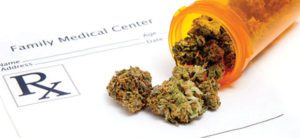By Dr. Steven Reichbach
 Although medical professionals are still discovering new reasons for depression and anxiety to this day, we know that a tiny portion in the brain called the amygdala, stores emotional and threatening thoughts and memories from our early childhood to present day.
Although medical professionals are still discovering new reasons for depression and anxiety to this day, we know that a tiny portion in the brain called the amygdala, stores emotional and threatening thoughts and memories from our early childhood to present day.
PTSD (Post Traumatic Stress Disorder) causes extreme side effects. Many individuals have severe nightmares, flashbacks, anxiety, hyper-startle responses, loss of interest, and unfortunately, are often suicidal. Numerous military veterans with PTSD have consistent issues with employment, violence, and relationships. These veterans also relive devastating flashbacks on a continual basis. Many people who suffer from PTSD have difficulty sleeping, feel detached and estranged, which can lead to permanent disability.
There are neurotransmitters throughout the entire body that send signals to the brain, alerting you instantaneously of real or perceived danger. Anxiety and PTSD are made up of both psychological and physical symptoms. The psychological part creates the nervousness, fear and worry, while the physical aspect produces sweating, rapid heart palpitations, a rise in blood pressure, nausea and shortness of breath.
When anxiety and PTSD disorders are left untreated or undertreated, several areas of the brain like the hippocampus (regulates emotions) and the prefrontal cortex (decision making, planning abilities) shrink causing long-term damage.
The stark reality is that the “standard of care” treatment for anxiety and PTSD often falls short. When these therapies disappoint, patients need alternatives for their brain and bodily health, cognition and long-term ability to function and experience calm.
The standard care is behavioral therapy, counseling, and anti-anxiety medications. The problem is treatment is often just not enough due to the brain’s complexities, and anti-anxiety meds are addictive. The other issue with standard medications is that they more often than not, become ineffective and are unable to reverse feelings of severe depression. This is called treatment-resistant depression.
Medical Marijuana Treats Depression, Anxiety & PTSD
Along with multiple disease states and disorders, Medical Marijuana (MM) is approved for PTSD, Depression, and Anxiety. Medical Marijuana is proving to be an effective treatment for anxiety, stress and depressive states given its ability to calm the body and mind by binding to the cannabinoid receptors. There are even studies that indicate it’s long-term effectiveness in repairing the brain cells and effects that cause anxiety.
How Does MM Work?
Our brain and nerve cells have cannabinoid receptors, so our bodies naturally react to cannabis (medical marijuana). The structure of cannabis interacts directly with our cells. Our natural endocannabinoid system works synergistically with medical marijuana, creating a multitude of beneficial reactions in the body. The endocannabinoid cells have tiny receptors that take in chemicals and produce responses. This natural system in our bodies regulates things like mood, sleeping, immunity, pleasure, memory and much more.
Medical marijuana is made up of THC and CBD. The CBD is known to bind to receptors and is thought to regenerate cells and brain function, while THC helps to relax and alleviate the physical symptoms of apprehension. There is a collaborative effect between these chemicals when taken together. This synergistic effect means the ratios and doses of THC and CBD can be manipulated for the patient’s benefit.
Medical marijuana can be used to treat and alleviate symptoms of numerous medical conditions. Listed below are the state’s qualifying conditions:
• Cancer
• Epilepsy
• Glaucoma
• HIV
• AIDS
• Post-traumatic stress disorder (PTSD)
• Amyotrophic lateral sclerosis (ALS)
• Crohn’s disease
• Parkinson’s disease
• Multiple sclerosis (MS)
• Medical conditions of the same kind or class as or comparable to those above
• A terminal condition diagnosed by a physician other than the qualified physician issuing the physician certification
• Chronic nonmalignant pain caused by a qualifying medical condition or that originates from a qualifying medical condition and persists beyond the usual course of that qualifying medical condition
• Patients can be considered for alternative disorders
You must visit a Physician that is licensed to recommend MM. To legally purchase and consume medical marijuana in Florida, a patient must have one of the 12 specific qualifying medical conditions regulated by the government, or have a medical condition that is deemed as appropriate.
Not all of the Certified Medical Marijuana Physicians are as proficient with how the various aspects of the marijuana plant serve the body, nor do they know what dosages are essential for specific disease states. This expertise is what sets Dr. Steven Reichbach of the Gulfcoast Ketamine Center apart from the rest.
To schedule an appointment, or to find out more about medical marijuana or other breakthrough treatment options, please call 941-213-4444, or visit their website at findpainrelief.com.
Steven Reichbach, MD
Board-Certified Anesthesiologist
President and Founder,
Gulf Coast Ketamine Center
Lolita Borges, RN
Clinical Director, Gulf Coast
Ketamine Center
2415 University Parkway, Building #3,
Suite 215, Sarasota, FL 34243
941-213-4444 | www.findpainrelief.com







